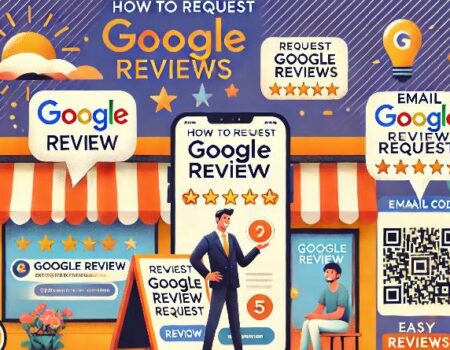The Ethical Use of AI in Digital Marketing
Artificial Intelligence (AI) is transforming digital marketing, offering faster data processing, automation, and customer engagement at unprecedented levels. Businesses leverage AI to enhance personalization, optimize ad targeting, and improve user experience. However, the rapid adoption of AI brings ethical concerns that cannot be ignored.
Is AI replacing human marketers? Not exactly. Instead, AI serves as an advanced tool that enhances efficiency and creativity. According to our 2024 Global Digital Skills & Training Report , marketing leaders are integrating AI into their strategies, with many expecting significant productivity improvements (50%), efficiency (45%), and innovation (38%).
With AI’s growing influence, the key question isn’t whether to use AI but how to use it responsibly. Ethical AI practices ensure transparency, fairness, and accountability while preventing privacy violations and bias. Businesses that adopt ethical AI practices will not only comply with regulations but also gain consumer trust, fostering long-term success.
What is Ethical AI?
Ethical AI refers to the responsible development and application of AI systems, ensuring fairness, transparency, and accountability. In digital marketing, ethical AI means:
- Enhancing user experience without misleading consumers.
- Ensuring AI tools do not reinforce biases or discrimination.
- Respecting data privacy and obtaining user consent before collecting information.
To better understand ethical AI, it’s important to distinguish between AI regulations and AI ethics.
AI Regulations vs. AI Ethics
AI regulations refer to legal frameworks ensuring responsible AI use. Some key AI regulations include:
- General Data Protection Regulation (GDPR):
Mandates transparency in data collection and processing.
- California Consumer Privacy Act (CCPA):
Grants consumers control over their personal data.
- AI Act (EU – Proposed):
Establishes risk-based AI governance for various industries.
While AI regulations enforce compliance, AI ethics go beyond legal requirements, focusing on fairness, inclusivity, and consumer trust. Just because an AI-driven marketing practice is legal doesn’t mean it’s morally responsible.
For example, using AI-powered chatbots for customer support is legal, but deceiving customers into thinking they are speaking with a human agent without disclosure is unethical.
Businesses that adopt ethical AI-driven Marketing Strategies. not only comply with laws but also foster stronger relationships with their customers, leading to long-term success.
Why Ethical AI is Important in Marketing
1. Builds Consumer Trust:
AI can generate text, videos, and images, making it easier to create content. However, failing to disclose AI-generated materials can damage credibility.
Example:
- YouTube and TikTok now require labels on AI-generated content to ensure transparency.
- Brands using AI-generated product images should disclose them to avoid misleading consumers.
By being honest about AI involvement, businesses can build credibility and maintain audience trust.
2. Protects User Privacy:
AI systems process vast amounts of consumer data, but ethical AI ensures privacy-first practices.
Example:
- Apple’s App Tracking Transparency (ATT) update limits third-party data collection, prioritizing user consent.
- Financial institutions like Mastercard and HSBC actively disclose AI-driven fraud prevention practices, ensuring transparency.
Brands that respect privacy build consumer confidence and reduce legal risks.
3. Ensures Fairness & Inclusivity:
AI models can inherit biases from training data. Ethical AI requires constant monitoring to prevent discrimination.
Example:
- Some AI hiring tools wrongly favor male applicants due to biased training data.
- E-commerce pricing algorithms may charge different prices based on a user’s location or perceived socioeconomic status
By choosing AI solutions that promote fairness, businesses can demonstrate their commitment to ethical marketing.
4. Prevents Legal & Financial Risks:
Failing to implement ethical AI can result in fines, lawsuits, and reputational damage.
Examples of AI-related fines:
- General Google (€250 million fine) –
Mandates transparency in data collection and processing.
- Clearview AI (GDPR violation penalty) –
Grants consumers control over their personal data.
By proactively addressing ethical concerns, businesses can avoid costly legal repercussions.
How AI is Used in Digital Marketing
AI is revolutionizing digital marketing by enhancing efficiency, personalization, and data-driven decision-making.
1. Social Media Marketing:
AI tools help brands:
- Analyze audience behavior to optimize posting schedules.
- Generate engaging captions and visuals for better social media performance.
- Automate customer responses with AI chatbots.
Example:
Instagram’s AI-driven algorithm boosts relevant content based on user engagement patterns.
2. Marketing Automation
AI enables businesses to:
- Segment audiences for personalized campaigns./li>
- Automate email marketing and retargeting efforts.
- Optimize ad performance in real time.
Example:
Amazon’s AI recommends personalized product suggestions based on purchase history.
3. User Experience (UX)
AI improves UX through:
- Predictive analytics to anticipate customer needs./li>
- Conversational chatbots for instant support.
- Voice search optimization for smart assistants.
Example:
AI-driven customer support systems reduce response time, improving user satisfaction.
4. Search Engine Optimization (SEO)
AI enhances SEO ( Search Engine Optimization ) strategies by:
- Suggesting relevant keywords for content creation.
- Optimizing for voice search through natural language processing.
- Generating content briefs based on search trends.
Example:
Google’s RankBrain algorithm uses AI to refine search results based on user intent. While AI boosts efficiency, marketers must remain aware of ethical challenges.
Partner with our Digital Marketing Agency
Ask Engage Coders to create a comprehensive and inclusive digital marketing plan that takes your business to new heights.
Contact Us
Ethical Concerns in AI-Driven Marketing:
1. Data Privacy & User Consent:
AI-driven platforms must obtain clear user consent before collecting personal data.
Example:
- Elon Musk’s X platform faced backlash for using artist content without permission to train AI models.
- Companies that fail to disclose data collection practices risk losing consumer trust.
2. Algorithmic Bias:
AI systems can reinforce social biases if trained on unbalanced data.
Examples of AI bias in marketing:
- AI-generated job descriptions favor male-dominated words.
- Stock image platforms mislabel professional women as “support staff” instead of “CEOs.”
Marketers should carefully vet AI tools to ensure fairness and inclusivity.
3. Transparency in AI Usage:
AI-generated content must be clearly disclosed to avoid misleading audiences.
Example:
- Gobelins Paris, an art school, faced student backlash for using AI-generated visuals in promotions without disclosure.
- Consumers appreciate honesty, brands that fail to disclose AI use risk damaging their reputation.
The Future of Ethical AI in Digital Marketing
The future of AI in digital marketing is filled with opportunities, but ethical concerns must be addressed to ensure responsible use. As AI continues to shape marketing strategies, businesses must focus on ethical practices to maintain trust and compliance
- Be Transparent: Clearly disclose AI-generated content and data collection practices.
- Ensure Fairness: Choose AI tools that prioritize bias reduction and inclusivity.
- Respect Privacy: Obtain explicit user consent before collecting personal data.
- Monitor AI Performance: Continuously review AI algorithms for ethical concerns.
- Stay Compliant: Keep up with AI regulations (e.g., GDPR, CCPA) to avoid legal risks.
By prioritizing transparency, fairness, and consumer trust, businesses can harness AI responsibly.
Final Thoughts
AI isn’t a replacement for human creativity—it’s a powerful tool that enhances marketing strategies. However, responsible and ethical AI implementation is crucial.
Marketers who prioritize ethical AI practices won’t just stay ahead of the competition—they’ll also build lasting consumer trust. In today’s digital landscape, ethical AI isn’t optional; it’s essential.
At Engage Coders, we specialize in creating high-quality, SEO-optimized content that drives results. With years of expertise in content marketing, we ensure excellence in every strategy we deliver.
Need expert guidance? Our skilled SEO professionals and content marketing specialists are ready to help you achieve digital success. Get a Free Quote today!







